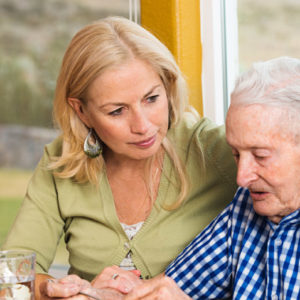 Caring For A Loved One
Caring For A Loved One
Caring for loved ones with serious illness means that you are dealing with medical issues at the same time that you also are serving as a source of important emotional support for the person who is ill. As a family caregiver, you are called upon to perform a large variety of tasks to provide care for your loved one.
For most family caregivers, responsibilities at work and home do not stop when a loved one becomes ill. Your own personal needs for rest and attention to your own health do not go away either. This means that you may find yourself juggling multiple responsibilities, some of which may conflict.
Caring for a loved one can be exhausting and challenging. There are varied and complex emotions. It is normal to feel both positive and negative emotions when providing care for a loved one who is ill.
Consider The Following As You Determine A Caregiving Plan:
Caring For Yourself
Caring for someone with a serious illness is hard, stressful work, and you need to keep your own health and well-being in mind. The better you care for yourself, the better you will be as a caregiver. Consider these tips:
Get Help
If friends, neighbors, or family offer to help, say yes and be specific about what they can do. You may need a break or someone to run an errand, or your loved one might appreciate a visit or an outing. Local organizations such as churches and community groups may be able to provide help through volunteer programs. If your loved one is receiving hospice care, ask what the program can do. Hospice workers or volunteers can relieve you so you can have some free time to take care of personal needs.
Take A Break At Least Once A Day
Read a book, go for a walk, or meditate. Find and practice whatever it is that refreshes you.
Take Care Of Your Own Health
Schedule regular checkups. Get enough sleep, exercise and eat right.
Get Support From Other Caregivers
Read caregiver newsletters, join a support group, or follow blogs. All can be helpful, not just to lend a compassionate ear, but also to share information and resources. This is especially important when you are caring for a seriously ill child. The emotional roller coaster can be overwhelming, and help in the form of counseling and support groups can be particularly beneficial. You may also want to visit CaringBridge, a site created to connect family and friends dealing with a serious illness.
Additional Caregiver Resources
You can find more caregiving advice and support, including information about physical care, how to make the home safe for your loved one, and guidance for taking care of yourself, on the following websites: